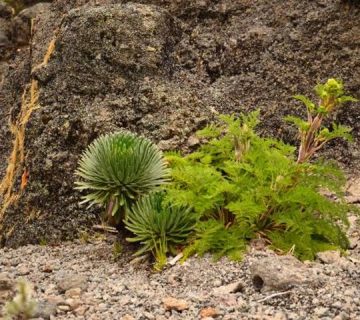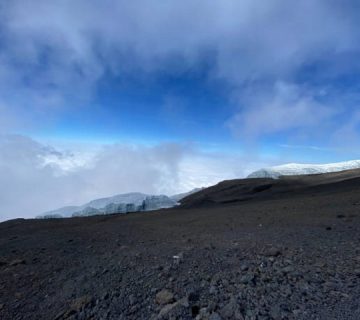Learn About Local Culture While Trekking Kilimanjaro
Introduction: The Heartbeat of Tanzania Meets the Roof of Africa
Imagine this: you stand at the base of Mount Kilimanjaro, the highest peak in Africa, not only prepared to conquer its challenging terrains but also to immerse yourself in the rich tapestry of culture that surrounds it. Trekking Kilimanjaro is not just about the physical journey to the summit; it’s an opportunity to connect with the local culture, understand the history, and experience the warm hospitality of the Chagga people, the indigenous residents of the mountain’s slopes. At Kilimanjaro Centre for Trekking and Ecotourism (KCTE), we believe that understanding the cultural backdrop enhances the magic of your climb. Join us as we explore how you can fully engage with the local culture during your Kilimanjaro adventure.
Embracing the Spirit of Kilimanjaro
The Chagga Culture: Life on the Slopes of a Giant
Mount Kilimanjaro is not just a mountain; it is the ancestral home of the Chagga tribe, a group of people whose history and culture are as rich and fertile as the volcanic soil they cultivate. Trekking through Kilimanjaro with KCTE, you’ll learn about the Chagga way of life, from traditional farming methods and coffee cultivation to ancient folklore that has been passed down through generations.
Music and Dance: The Rhythmic Pulse of Kilimanjaro
As you ascend the mighty Kilimanjaro, the melodies of local music might drift through the villages. Participate in a dance or drumming session to feel the true pulse of Kilimanjaro. These cultural expressions are not just entertainment; they are a celebration of life and a sacred ritual that connects the community with their ancestors and the mountain.
Language: Swahili Phrases to Enhance Your Trek
Swahili is the lingua franca of Tanzania, a beautiful language that is both musical and practical. Learning a few phrases can transform your trek, allowing you to greet and thank your porters and guides in their language, which is always appreciated. Simple phrases like “Jambo” (Hello), “Asante” (Thank you), and “Habari?” (How are you?) can open doors to more meaningful interactions.
Culinary Journey: Taste the Flavors of Kilimanjaro
Local Cuisine: More Than Just Fuel for Climbing
Your trek up Kilimanjaro will be energized by wholesome local dishes, often made from fresh, organic ingredients sourced directly from the mountain’s fertile soil. Sample traditional Chagga dishes such as Ugali (a maize porridge), Mchicha (a type of spinach), and Ndizi Nyama (banana with meat stew). Each meal is a chance to savor the local flavors and understand the dietary foundations that have sustained generations of mountain dwellers.
Coffee Ceremonies: A Warm Welcome
Coffee is a significant part of Tanzanian culture, particularly on the slopes of Kilimanjaro where some of the world’s best coffee is grown. Participate in a coffee roasting and brewing ceremony to not only taste this rich brew but also to learn about its importance in local trade and social life.
Sustainable Tourism: Supporting Local Communities
Community Projects: Travel with a Purpose
At KCTE, we are deeply committed to responsible and sustainable tourism. By choosing to trek with us, you support local employment and contribute to community projects that help improve living conditions around the mountain. Our tours are designed to ensure that the benefits of tourism are shared with local communities, preserving their cultural heritage and natural environment.
Handicrafts: Take Home a Piece of Kilimanjaro
Visit local markets and cooperatives to see the beautiful handicrafts made by local artisans. Purchasing these goods not only provides you with a unique souvenir but also supports the artisan’s craftsmanship and family. From beaded jewelry to handwoven baskets and batiks, these items tell a story of cultural heritage and skill.
Preparing for Your Cultural Trek
Respect and Understanding: Keys to Cultural Immersion
A successful cultural trek is built on respect and understanding. We encourage all trekkers to approach cultural experiences with an open mind and heart. Respect local customs and traditions, dress modestly, and always ask for permission before taking photographs.
Choosing the Right Tour Operator
To fully experience the cultural and natural beauty of Kilimanjaro, it’s crucial to choose a tour operator that values both. At Kilimanjaro Centre for Trekking and Ecotourism (KCTE), we pride ourselves on our deep roots in the local community and our commitment to providing guests with an authentic and enriching experience.
Conclusion: A Call to the Cultural Explorer
Climbing Kilimanjaro is an adventure of a lifetime, and understanding the local culture enriches this experience, turning it into something profoundly transformative. At Kilimanjaro Centre for Trekking and Ecotourism (KCTE), we are excited to guide you through both the physical and cultural landscapes of this majestic mountain. Book your climb with us today and prepare to be inspired, not just by the views from the top, but by the heart and soul of Tanzania.
FAQs: Learn About Local Culture While Trekking Kilimanjaro
Q1: Do I need to speak Swahili to trek Kilimanjaro?
A1: No, it is not necessary to speak Swahili to trek Kilimanjaro, as most guides speak English. However, learning a few basic phrases can enhance your experience.
Q2: How can I participate in a coffee ceremony?
A2: Our guided treks often include a visit to a local coffee farm where you can participate in a traditional coffee ceremony. It’s a beautiful way to connect with local tradition.
Q3: Are there opportunities to visit local villages during the trek?
A3: Yes, some of our trekking routes offer opportunities to visit local villages. This is a great way to see the daily life of the Chagga people and learn about their culture.
Embark on a journey that’s as enriching culturally as it is physically exhilarating. Trek Kilimanjaro with the experts at Kilimanjaro Centre for Trekking and Ecotourism (KCTE) and prepare for an unforgettable adventure.




